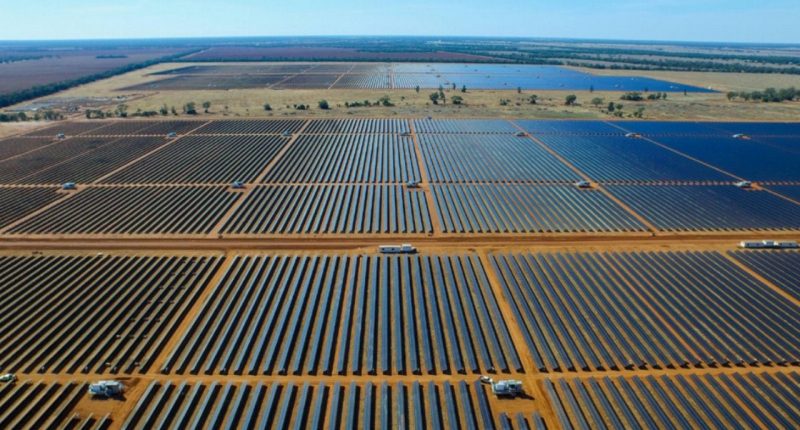- Government-owned Queensland Investment Corporation (QIC) today announces commitment for net-zero emissions across its infrastructure portfolio
- The investment firm’s QIC Global Infrastructure arm today committed to slashing Scope 1 and Scope 2 emissions by at least 50 per cent by 2030 before reaching net-zero by 2040
- QIC Head of Global Infrastructure Ross Israel says the firm’s commitments further its objectives to prepare for the “escalating risks” of climate change
- QIC says it has invested over $4 billion globally into the sustainable and renewable energy sectors in 2021
- Meanwhile, the Clean Energy Finance Corporate (CEFC) announces it is investing $72 million into QIC as part of a billion-dollar capital raising launched by the investment firm
Government-owned Queensland Investment Corporation (QIC) is the latest major business to up its climate change commitments, today announcing plans for net-zero emissions across its infrastructure portfolio.
The investment firm’s QIC Global Infrastructure arm today committed to slashing Scope 1 and Scope 2 emissions by at least 50 per cent by 2030 before reaching net-zero by 2040 across its two pooled funds, the QIC Global Infrastructure Fund (QGIF) and the QIC Infrastructure Portfolio (QIP).
Combined, the funds represent over $5 billion of capital.
Scope 1 emissions refer to direct emissions from the company — such as company-owned vehicles or factories. Scope 2 emissions refer to emissions from purchased energy — with electricity typically a unique source of Scope 2 emissions for most businesses.
Scope 3 emissions refer to all other types of indirect emissions, meaning they’re often the most difficult to track given they can be linked to any and all aspects of a business’ value chain.
QIC said on top of its commitments for net-zero first- and second-scope emissions, it was also committing to lessen broader Scope 3 emissions where possible.
QIC Head of Global Infrastructure Ross Israel said the firm’s commitments furthered its objectives to prepare for the “escalating risks” of climate change.
“We believe it reflects the scale and urgency of action required to actively manage and deliver strong risk-adjusted returns from the infrastructure asset class,” Mr Israel said.
“We have been working with each of our portfolio companies for some time on addressing climate vulnerabilities and reducing emissions. Committing to these targets represents a distillation of the significant work undertaken to understand the specific net-zero emission pathway for each asset within our funds’ portfolios.”
Putting its money where its mouth is, QIC has invested over $4 billion globally into the sustainable and renewable energy sectors in 2021.
The firm has been a major investor in the likes of PowAR, an Australian renewable energy platform; Generate, a US distributed infrastructure platform; and CebTrui, which QIC claims is the largest pure-play energy district platform in the States.
CEFC support
In tandem with QIC’s renewed emissions reduction commitments, the Clean Energy Finance Corporate (CEFC) announced it was investing $72 million into QIC as part of a billion-dollar capital raising launched by the investment firm.
CEFC is an Australian government-own ‘Green Bank’.
With the extra $72 million, CEFC has invested just shy of $3.4 billion into QIC.
CEFC CEO Ian Learmonth said the QIC Global Infrastructure Fund (QGIF) provided an “exciting opportunity” to deliver meaningful climate change action.
“These assets are critical to our economic growth and QGIF is demonstrating how they can play a leading role in our transition to a low emissions economy,” Mr Learmonth said.
“Infrastructure transformation is critical to the decarbonisation of the economy. Australia’s ports, cities and airports can all play a role in achieving net-zero emissions, delivered alongside sustainable growth and development.”
According to CEFC, around 70 per cent of Australian carbon emissions are associated with infrastructure projects.







